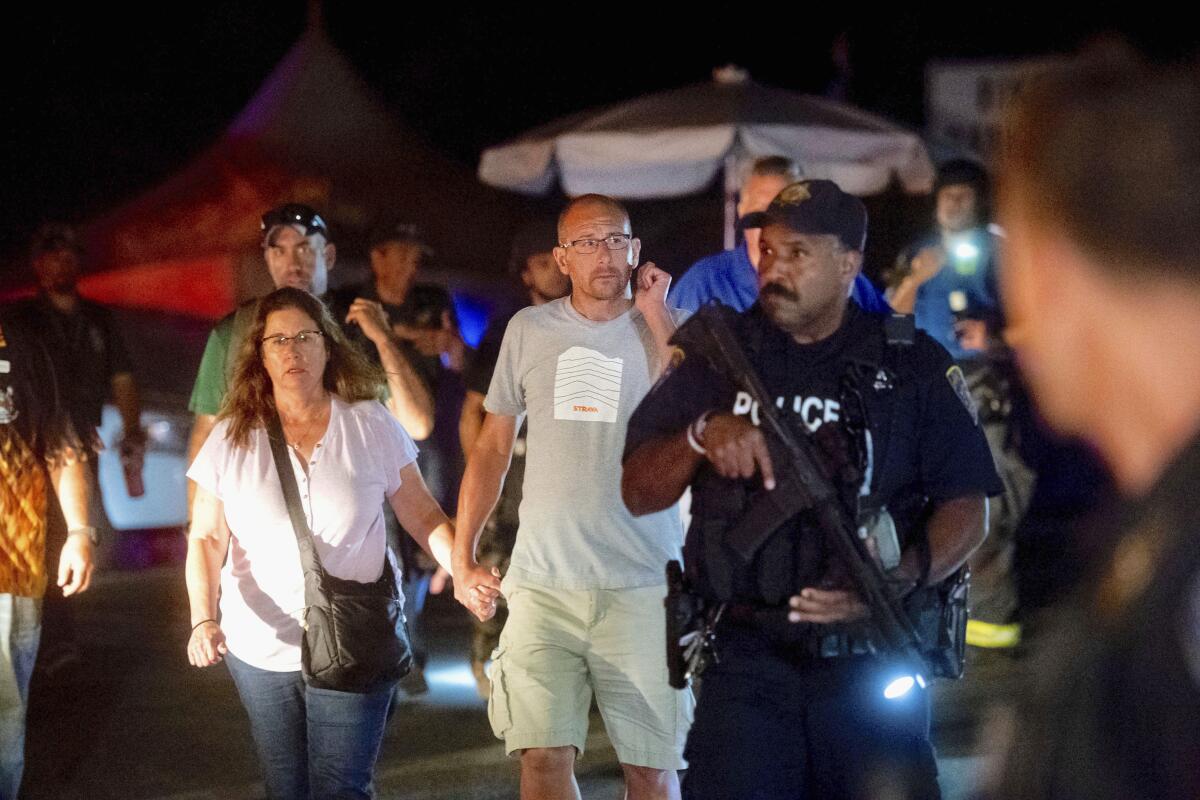Opinion: The Gilroy Garlic Festival killings weren’t the only U.S. gun deaths on Sunday

The shooting deaths of three people at the Gilroy Garlic Festival on Sunday by a 19-year-old man armed with a combat-style rifle was both a tragedy and, as The Times editorial board phrased it, “part of a sick American tradition.”
Gun violence is a seemingly intractable part of the nation’s daily life. In fact, on the same day as the Gilroy mayhem, there were at least 167 other shooting incidents around the country killing more than 50 people and wounding at least 140 more, according to a database maintained by the Gun Violence Archive.
Just one day.
And that doesn’t include suicides committed with firearms, which usually occur at twice the pace of firearm-related homicides.
Fortunately, the rate of gun deaths in the U.S. has dropped since the early 1990s, but they still occur at an astoundingly higher pace than in other industrialized nations.
In fact, the European Union, which includes 508 million people living in 28 countries, has about 1,200 gun homicides per year. The U.S., with a population less than two-thirds of the EU nations, has that many gun homicides in a month.
Tuesday night is the start of the second two-day round of debates by Democratic presidential hopefuls, and it will take place in downtown Detroit, which remains one of the nation’s most violent big cities.
That would be a good time and place for the debate questioners to ask what the candidates think can be done to address gun violence, and how to counter the inordinate influence of the gun lobby in Congress.
Because there are solutions. We can’t end all gun deaths, of course, but we must take as many steps as practical to reduce access to firearms, the number of firearms in circulation, and the destructive, violent impulses that lead a “really angry” `19-year-old to let loose on people doing nothing more threatening than picnicking and listening to music on a warm summer day.
More to Read
A cure for the common opinion
Get thought-provoking perspectives with our weekly newsletter.
You may occasionally receive promotional content from the Los Angeles Times.











